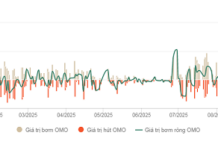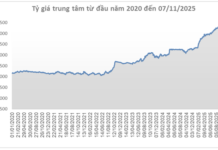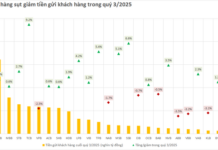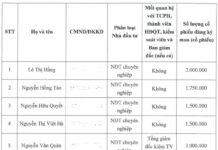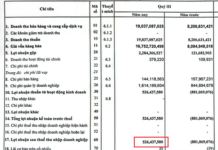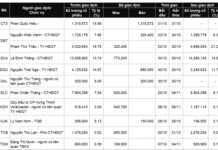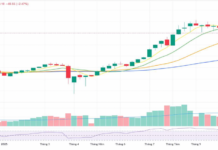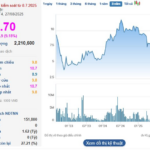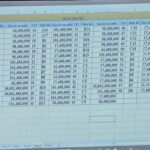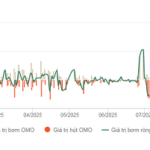Concerns Over Increased Deposit Requirements and Additional Penalties in Land Auctions
Addressing challenges in asset auctions, the Judicial Support Department (Ministry of Justice) acknowledged instances of bidders intentionally placing unusually high bids, only to forfeit their deposits later. This, along with collusion and price manipulation in land auctions across several localities, has led to significant exploitation.
In response, the draft Government Resolution on addressing difficulties in asset auctions stipulates that for residential land allocation or land leases for investment projects, the minimum deposit for participating in land use rights auctions is set at 10%, with a maximum of 50% of the starting price.
Regarding penalties for violations by successful bidders in land allocation or lease cases, the draft Resolution specifies that individuals who fail to fulfill payment obligations, leading to the cancellation of auction results, will face a ban from participating in auctions for 6 months to 5 years. They are also obligated to cover all auction-related expenses, including organizational costs and service fees, as notified by the competent authority.
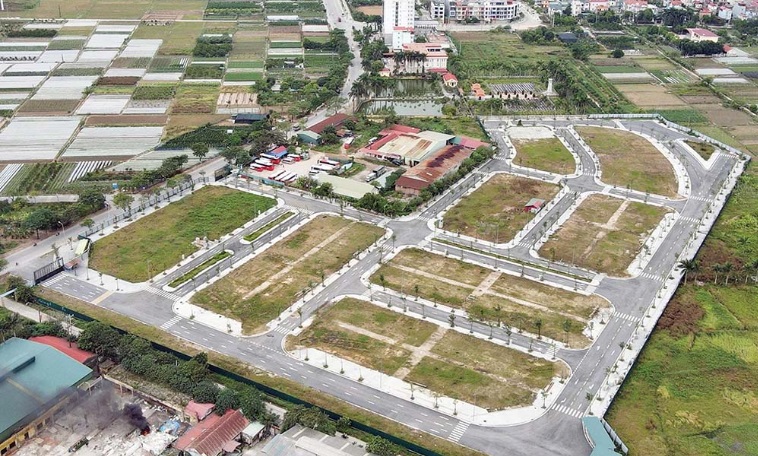
Auctioned land plot in Tien Duong Commune, former Dong Anh District.
|
During the meeting on the draft Resolution, Deputy Minister of Justice Nguyen Thanh Tu suggested reconsidering the proposed ban of 6 months to 5 years. He noted that Article 70 of the current Law on Asset Auctions only applies such bans to cases involving investment projects and mineral exploitation. Increasing the deposit to 50% is already a strong deterrent, as bidders would hesitate to forfeit such a substantial amount. Therefore, adding a participation ban is unnecessary.
Regarding fees and deposits, Deputy Minister Nguyen Thanh Tu emphasized that with a high deposit and forfeiture penalties in place, additional fees would be redundant and only complicate matters. He supported raising the minimum deposit from 20% to 50% as a reasonable and effective deterrent.
Meanwhile, Deputy Minister of Justice Phan Chi Hieu expressed concerns about raising the maximum deposit to 50%. He argued that localities would likely apply the highest rate, potentially deterring participation or limiting bidders to large enterprises specializing in reselling auctioned properties, which could exacerbate exploitation.
Hieu attributed the root cause of deposit forfeitures to starting prices being significantly lower than market rates. He suggested focusing on setting starting prices closer to market values, making even a 20% deposit a substantial amount that bidders would not risk losing. He also recommended flexible deposit rates, allowing asset owners to determine specific amounts, and exploring additional sanctions under civil law.

Attorney Tran Xuan Tien.
|
A 50% Maximum Deposit Doesn’t Exclude Investors, But Opportunists
In an interview, attorney Tran Xuan Tien (Head of Dong Doi Law Firm) argued that relying solely on high deposits for deterrence is insufficient.
“There are individuals with sufficient financial means who would willingly forfeit deposits if their primary goal is to disrupt the market or block competitors,” stated attorney Tien.
He noted that intentional deposit forfeitures not only harm the state but also erode trust in the fairness of auction mechanisms.
Therefore, attorney Tien emphasized the need for a temporary ban on auction participation as an additional measure to exclude dishonest behavior from public asset auctions and those of other entities.
Attorney Tien pointed out that while current laws do not explicitly ban participation in residential land auctions, this gap could be addressed through the Government’s Resolution. He advocated for flexible legal frameworks to promptly address existing loopholes.

Attorney Le Hong Hien.
|
Attorney Le Hong Hien (Le Hong Hien & Associates Law Firm – Hanoi Bar Association) added that low deposits enable ill-intentioned individuals to easily place bids and later forfeit, disrupting the market. This issue is not about favoring small or large investors but about filtering out those seeking unfair advantages. A reasonable deposit protects genuine investors, including small and medium enterprises, who participate with legitimate investment intentions rather than price manipulation or place-holding.
He stressed that the fundamental solution remains setting starting prices closer to market rates. With realistic starting prices, even a 20% deposit would be a strong deterrent, preventing fictitious bidding and subsequent forfeitures.
Both attorneys agreed that administrative or criminal penalties for auction manipulation, collusion, and price undermining need clearer definitions.
They emphasized that land auctions are a critical tool for allocating national land resources and public assets through market mechanisms. Ensuring transparency and fairness requires robust legal frameworks to deter exploitation and encourage capable investors.
“Raising the maximum deposit to 50%, coupled with flexible mechanisms, temporary participation bans, and strict penalties for violations, are appropriate measures given current realities. Minor inconveniences should not delay tightening regulations in public asset auctions. Such steps will enhance transparency, fairness, and attract genuinely capable investors to the land auction market,” attorney Le Hong Hien concluded.
Hoàng An
– 11:52 26/09/2025
The New Land Laws: What Every Citizen Needs to Know
The new Decree No. 226, which amends and supplements several articles of the decrees detailing the Land Law, took effect on August 15th. It introduces key changes such as revisions to the regulations on recording land use fee debts when issuing land use rights certificates, new provisions on appraisal and approval of land use right auction schemes, and additional cases for compensation in land revocation.
The Art of Market Manipulation: A Legislative Guide to Curbing Illicit Stock Market Practices
Under the new law passed by the National Assembly, detailed provisions have been made regarding acts that are considered to be market manipulation in the securities sector.







